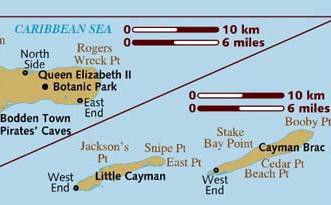Even Goldman Sachs Thinks John McCain's "Repatriation Tax Holiday" is a Joke

What’s John McCain’s plan for the economy? Why, another “repatriation tax holiday,” wherein companies bring money onto virtual “U.S. soil” at a reduced rate. He’s going to “unveil” it today. (Bloomberg says: “Independent studies showed that when a tax holiday was last offered, in 2004, the lower tax rate for returning profits spurred little hiring or domestic investment. Most of the money was used to buy back stock.”) The McCain reasoning is: “more capital in America = better for economy.” Who benefits? “The proposed holiday would reward the companies that have most aggressively parked profits in tax havens such as Bermuda, the Cayman Islands and Switzerland,” is what a former Treasury Dept. guy told Bloomberg. And here’s what Goldman Sachs says, in an analyst report published for its investors last night.
While a tax holiday would increase tax receipts in the near term as foreign profits that had been “permanently” reinvested would be repatriated, over a multi-year period it would result in a decline in tax revenue.
Heh! It’s a question of short-term cash versus long-term gain:
In April 2011, the Joint Tax Committee estimated that a 5.25% temporary rate, as opposed to a statutory rate of 35%, would increase revenue by $25.5 billion in fiscal years 2011–2013 (because the pent-up reservoir of overseas cash would flood back in a relatively short period), but would result in an overall reduction in revenue of $79 billion over the 2011–2021 period (because the average effective rate on overseas profits would be lower). A 10.5% rate would have the same directional effects, but with a $42 billion revenue loss over ten years. Since the last round of repatriation in 2005, US companies have accumulated retained earnings abroad of around $1.2 trillion, according to the Federal Reserve’s Flow of Funds report.
